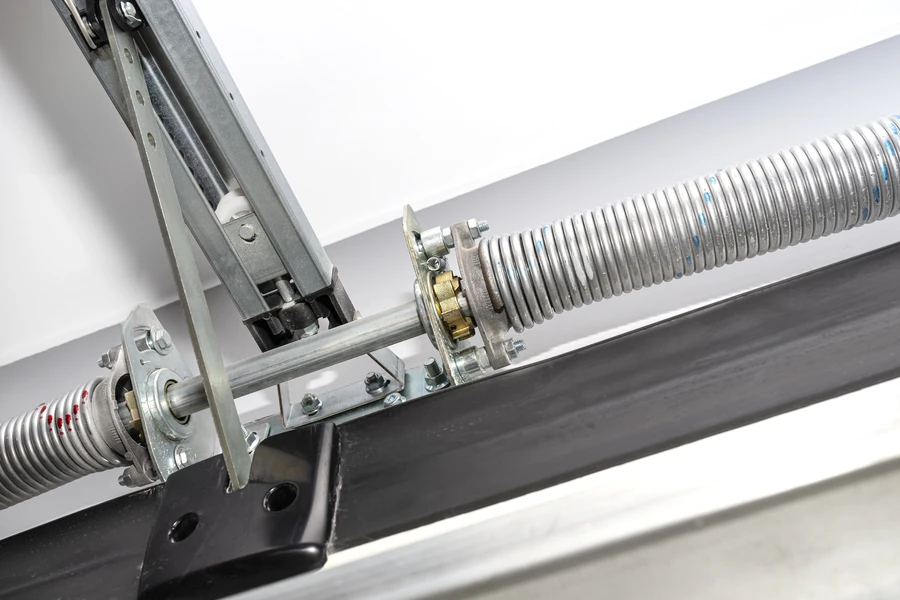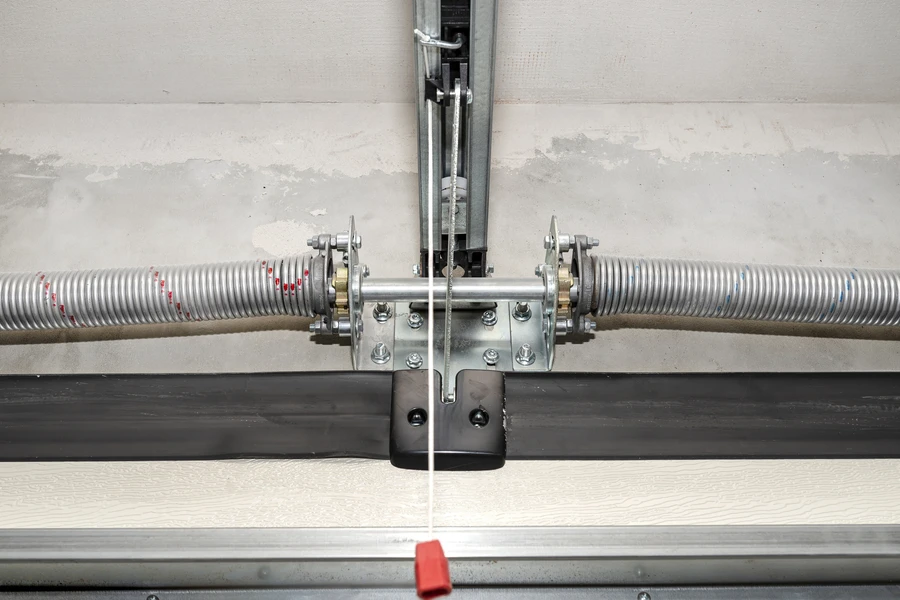Understanding the Unique Characteristics of These Spring Systems
Garage doors rely on spring systems to operate smoothly. When it comes to choosing a spring system, you have two main options: torsion springs and extension springs. Each type has unique characteristics that affect performance, installation, and maintenance. Knowing the differences between these springs can help you make informed decisions about your garage door system.

Basic Overview of Torsion Springs
Torsion springs are installed above the garage door. They store mechanical energy when wound tightly around a shaft. This energy is then used to lift the door’s weight, making it easier to open and close. Torsion springs are known for their durability and smooth operation.
Characteristics of Extension Springs
Extension springs work differently from torsion springs. They run along the sides of the door tracks. When the door is closed, these springs stretch, storing energy that helps pull the door up when opened. Typically, they are more affordable but may require more frequent adjustments.

Benefits of Torsion Springs
Torsion springs offer several advantages due to their design. They provide balanced lifting force, resulting in less strain on the garage door opener. This balance leads to quieter operation and often longer-lasting components. Moreover, torsion springs generally require less maintenance.
Advantages of Extension Springs
On the other hand, extension springs can be a cost-effective solution for homeowners. They are usually cheaper than torsion systems, making them accessible for budget-conscious installations. Additionally, they are easier to replace individually if one fails, which can simplify repairs.
Common Issues With Torsion Springs
Despite their benefits, torsion springs can present challenges. They demand precise installation and regular inspections by professionals to ensure safety and optimal performance. Mishandling these springs during garage door spring replacement can lead to serious injuries or damage.
Potential Problems With Extension Springs
Extension springs have their set of issues as well. Over time, they may become unbalanced or snap under tension, necessitating garage door spring replacement. The risk of sudden failure is higher compared to torsion springs, which could compromise safety.
Installation Considerations for Homeowners
If you’re considering installing or replacing garage door springs yourself, it’s crucial to understand each type’s intricacies. For most homeowners, hiring a professional is advised due to the dangers involved in handling high-tension components.
Choosing the Right Spring System for Your Needs
- Consider your budget constraints
- Evaluate desired longevity and maintenance levels
- Think about noise levels important for your household
- Assess space requirements for installation
Final Thoughts on Selecting Spring Types
Ultimately, selecting between torsion and extension springs depends on your specific needs and circumstances. Both types serve essential functions in supporting garage doors, yet they do so with different strengths and weaknesses. By understanding these distinctions, you can better choose what suits your setup best.
Your Local Expert for Garage Door Needs
I am based in Mckinney, TX and specialize in providing reliable and efficient solutions for all your garage door concerns. Reach out at (469) 885-8106 for expert advice tailored to your unique situation. At Garage Door Heroes, every service is designed to meet your exact needs while ensuring safety and performance.
